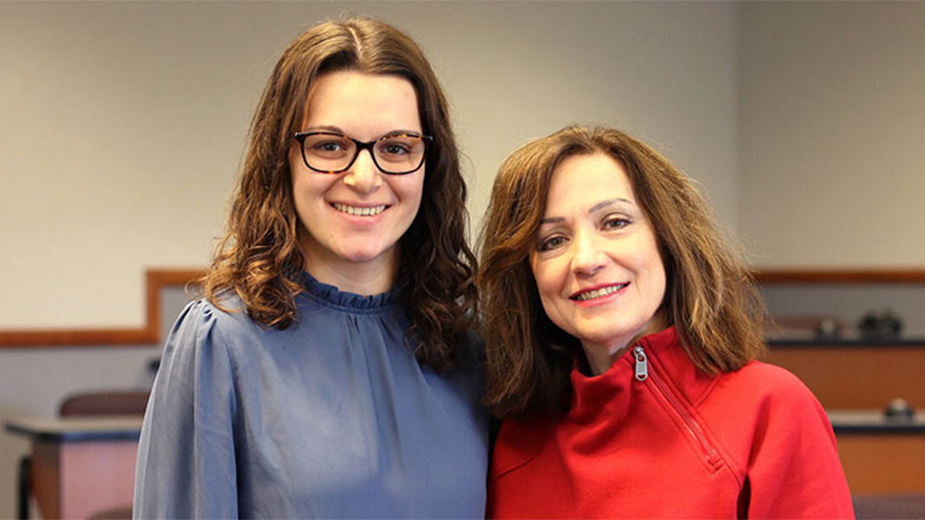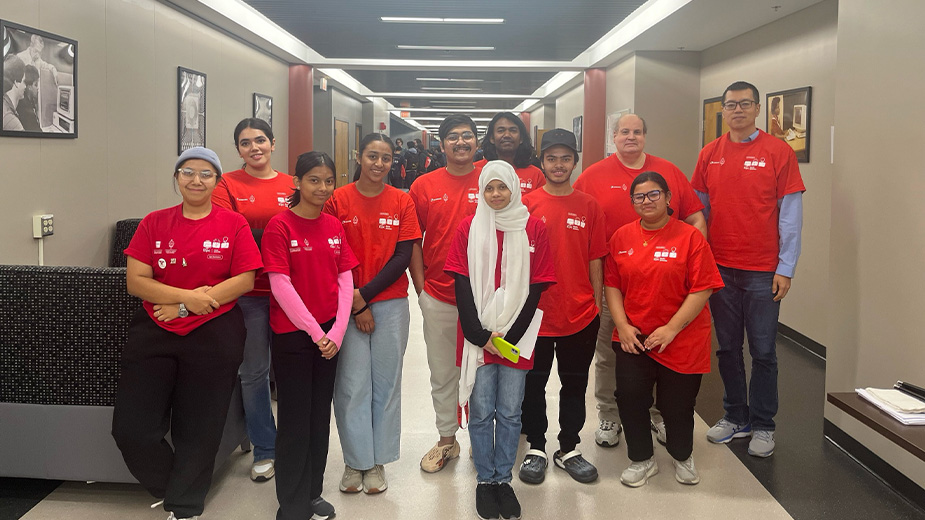Grove City Student-faculty Study on Migrant Children Published
GROVE CITY, Pa. – Research by a prize-winning student-faculty duo from Grove City College on the care of unaccompanied migrant children in Pittsburgh was recently published by the Center for Public Justice.
Megan Brock of Renfrew, Pa., a senior social work major, and Lisa Hosack, chair and associate professor of social work, were awarded the Hatfield Prize earlier this year by the Alexandria, Va.-based Christian civic education and public policy research organization. In their research, the duo studied how children without legal status are served by social service and governmental organizations in a city far from the border.
Their research paper, “Pittsburgh’s Untapped Resources: Enhancing Support for the Rising Number of Unaccompanied Children,” was published this month, along with work from the other two Hatfield Prize-winning teams from Wheaton College and Baylor University.
“The opportunity to apply for the Hatfield Prize came unexpectedly, and I took a chance with Dr. Hosack by applying. … I am proud and so grateful that CPJ picked me as one of their Hatfield Prize recipients this year,” Brock said.
The duo’s research focuses on the challenges to providing sufficient care for unaccompanied migrant children by organizations and various levels of government, from too few resources to overwhelmed facilities. The research highlights that underutilized cities such as Pittsburgh, overlooked because of its distance to the border, can provide the additional support needed to properly care for these children while also benefiting the city itself.
Brock said their study began with an analysis of the specific section of the Homeland Security Act that addresses unaccompanied children to look for gaps in the policy that could lead to improvement. Research into government documents, public websites and interviews with experts followed.
They found Pennsylvania has just two residential care sites for children transported from the border and, with the Office of Refugee Resettlement being desperate for more sites, they further assessed Pittsburgh’s ability to handle the children’s care.
“I concluded that Pittsburgh has the capacity to care for more unaccompanied children, which is overall a positive finding,” Brock said.
The research also revealed a disconnect between federal and state priorities, according to Brock.
“I found how little Pennsylvania is involved in the care of unaccompanied minors most surprising because the problems at the border are so well known among Americans right now. This points to how much people don’t know about the immigration system,” she said.
Emily Crouch, program director of Shared Justice at the Center for Public Justice, emphasized the importance of Brock and Hosack’s work.
“Immigration is one of those hot-button topics that most people I know in politics have an opinion about,” Crouch said. “This report acknowledges the heat of the conversation and then turns the temperature down, choosing to think about solutions for where we are at now.”
Hosack said working with Brock and CPJ on the project was “an incredibly rich” experience.
“Through our research, we grew in admiration for providers and policymakers in our region and grew in empathy for those navigating extremely vexing issues around the world,” she said.
Pictured at top: Megan Brock, left, and Lisa Hosack.
Published by The Business Journal, Youngstown, Ohio.



